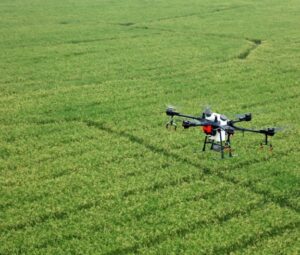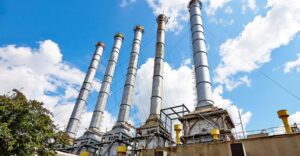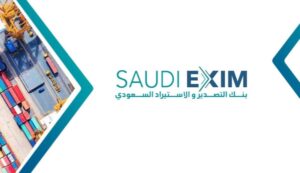
The processing of agricultural crops using unmanned aerial vehicles is the most promising direction in the Ukrainian agricultural machinery industry, the Astarta agricultural holding has begun experimental implementation of this type of aviation this year, CEO of AgriChain, which is part of Astarta, Natalia Bohacheva has said.
“Drones are the most promising direction in Ukraine today. We use the drone scouting. These are video inspections and panoramic images of fields at different heights, at different angles with satellite monitoring,” she told Interfax-Ukraine on the sidelines of the Ukraine CFO Forum in Kyiv held last week.
According to her, drones are most effective in assessing the state of crops and promptly responding to emerging risks. In addition, this aircraft technology allows pre-harvest drying of grain crops with greater efficiency than using wheeled vehicles. This is especially pronounced during desiccation of rapeseed, which can be significantly damaged by the bottom of the vehicles processing it.
Bohacheva said that pilot schemes for processing crops with drones were introduced at a number of enterprises of the agricultural holding this year, mainly for rapeseed.
“I myself was a huge skeptic of drone treatments, especially in terms of refueling and charging, but the case with desiccation confirmed their effectiveness,” the head of AgriChain said.
AgriChain is a product company that develops solutions for the AgTech market, founded in 2016 by the Astarta agricultural holding.
According to the unified public register of legal entities and sole proprietors, 99.8% of the charter capital of Agri Chain LLC belongs to Astarta CEO Viktor Ivanchyk through Astarta-Kyiv LLC.
Astarta is a vertically integrated agro-industrial holding operating in eight regions of Ukraine.

In the very heart of Kyiv, at 8a Lva Tolstoho Street, a multi-brand showroom Dim Brendiv has opened.
The showroom presents various collections of Ukrainian brands. Buyers got the opportunity to immerse in the world of fashion, beauty and style, and designers – to present their collections and find new fans of their brand.
The showroom collected various products by style, texture and age criterion. There are also daily casual blouses and skirts, suits, evening dresses and outerwear.
It also presents various accessories that women of fashion will be able to effectively complement their image.
The showroom is bright and spacious, shopping lovers will be able to view themselves and their friends in magnificent large mirrors, and the staff will prepare a cup of fragrant tea with sweets so that customers can rest after trying on their outfits.

The assortment and brands presented can be viewed on the Dim Brendiv Instagram page. New collections and models of clothes are presented every day.


“In my showroom there are a lot of cool and exclusive items of famous Ukrainian brands that are not presented anywhere else in Kyiv. I fell in love with these things from the first collection, and with each new look book, you can find models that you really want to buy. The assortment is constantly updated, and we immediately post the most stylish items on our Instagram page. We are open to both buyers and Ukrainian designers who want to present their collections in our stylish premium class showroom. Come to us, our doors are always open!” the owner of the showroom, a girl with a great taste, Maryna Kharetonchuk, who chooses clothes from Ukrainian designers, told Open4Business.com.ua .



It is worth noting that the showroom is located near the Lva Tolstoho metro station in the very center of Kyiv, at 8a Lva Tolstoho Street, opening hours are from 11:00 to 20:00 daily.

Kharkiv Heating Networks have already connected over 90% of houses to heating, director of the municipal company Vasyl Skopenko said.
“Since October 6, we have connected the entire social sphere. Since October 14, we have begun to connect residential buildings. As of today [October 21], we have already supplied heat to 91% of houses. It is clear that there are problems with air removal and defects, but I think that 3-4 days – and we will fully provide everyone with heat,” he said during a press conference at the Interfax-Ukraine agency.
Skopenko specified that the company provided an advance payment for natural gas for October and will be able to pay for November gas. At the same time, he predicted that due to low payments from the population, the company will not be able to accumulate the necessary funds to pay for gas in December-January, its accounts will be seized and the money will be automatically debited.
“I think everyone will have such a situation. Whatever memorandums we sign, given the gas price that exists, with a cash gap and the population’s ability to pay, it will be like this,” he said.
According to him, the difference in tariffs between the cost of heat supply and bills for the upcoming heating season for Kharkiv will be about UAH 2.4 billion, since tariffs for the population were not revised, and the price of gas increased.
The head of the company also said that in preparation for the heating season, the enterprise this year has replaced more than 100 km of heating networks, installed about 300 individual heating points with weather regulation in residential buildings, overhauled 24 boilers with a capacity of 30 to 100 Gcal.
In addition, within the framework of the program with the World Bank, 11 frequency-controlled pumps were put into operation.
“By the way, it is very economically profitable. In winter mode, one such pump gives energy savings in the range of UAH 1 million,” Skopenko said.
Also, within the framework of the program with the World Bank, six new small boiler houses were installed instead of the demolished 60-70-year old ones.
A source:
November 2-4, 2021
IEC, 15, Brovarsky ave, Kiev.
WINE&SPIRITS Ukraine – The Fourth International Exhibition – a meeting place for wine, spirits and beer producers from all over the world with importers, sommeliers, distributors, representatives of retail and restaurant business from Ukraine and abroad.
Among the participants of the exhibition are well-known Ukrainian producers of wines and spirits in Ukraine and abroad – Chateau Chizay, 46 Parallel, Beykush, Prince Trubetskoy, Inkerman, Prestige Group, Odesos, Koblevo, Cotnar and small winemakers and producers of craft spirits.
Also, manufacturers from Armenia, Argentina, Bulgaria, Great Britain, Georgia, Denmark, Spain, Italy, Lithuania, Moldova, Portugal, USA and France, already represented on the Ukrainian market or only planning to enter it, will present their products.
https://wineandspirits.com.ua/catalogue2021/
BeerEx Ukraine – the exposition of beer and low-alcohol drinks will be presented for the third time in the framework of Wine&Spirits Ukraine and will bring together not only Ukrainian craft and industrial producers, but also breweries from the Czech Republic, Spain, Belgium and other countries.
In addition to alcoholic beverages, the exhibition will feature technologies for winemaking and brewing, and packaging.
For Ukrainian manufacturers, the exhibition is not only an opportunity to expand the representation of their brands in all regions of Ukraine, but also an export platform, since among the visitors there are buyers from other countries – USA, Japan, Canada, Portugal, Kenya, Lithuania, Slovakia, Denmark, Germany, the United Arab Emirates, Turkey, The Netherlands, India, Great Britain, Kazakhstan, etc.

The rich business program of the exhibition will attract the attention of the leading market players.
So on November 2, the Tre Bicchieri World Tour will take place – for the first time in Ukraine, the main Italian media holding Gambero Rosso will present the best wines of Italy, the winners of Tre Bicchieri – Three glasses of the VINI d’Italia wine guide – the highest award for Italian producers!
To select the best of the best, experts taste more than 44,000 wines throughout the year, and only 1% of them will receive the honorary Tre Bicchieri – 476 in 2021. And this wines will be presented by Italian winemakers in Kiev – the first city that will meet the winners right after the grandiose awards ceremony in Rome!
Wine&Spirits Congress with the support and participation of the Association Ukrsadvinprom will raise the topic of promotion to export markets, as well as separate panels will be devoted to retail and HoReCa – within the Wine&Spirits Retail and Resto Forum, senior executives and off-trade experts, restaurateurs and sommeliers will share their experience in the development of modern trade in wine and spirits, the rules of “entering the chain”, and will also be awarded for the best representation in the store and the best list of wines and spirits.
Within the framework of the exhibition, the Fourth International Tasting Competition Ukraine Wine&Spirits Awards will be held with the support and participation Association of Sommelier of Ukraine and the International Sommelier Association. The competition will bring together 50 best professionals of the wine industry of Ukraine and Europe, who will blindly taste the products in order to choose the most worthy wines and spirits presented on the Ukrainian market. Companies will be able to place all medals received at the competition on the label of their product in the future.
Also, the guests will receive training seminars on previously little-known wine regions – Switzerland, Bulgaria and Armenia.
A series of master classes with the best wines of Italy from Marco Sabelico – editor-in-chief of Gambero Rosso, as well as presentations from Italian, Georgian, Moldovan, French and other producers who will not only present their wines, but also talk about the peculiarities of terroir and wine production in their region.
Visitors of the exhibition are sommeliers, importers, distributors, buyers of HoReCa, retail and e-commerce will be able to familiarize themselves with a wide range of wines, alcoholic beverages and beer, get an idea of new product lines in the alcoholic sector to expand their range and choose the most favorable purchasing conditions.
Wine&Spirits Ukraine and BeerEx Ukraine exhibitions will be held simultaneously with the largest international food and beverage exhibition in Ukraine WorldFood Ukraine.
Registration of visitors https://wineandspirits.com.ua/visit/

Export-import bank SAUDI Exim Bank (Saudi Arabia) will provide state-owned Ukreximbank (Kyiv) with $ 25 million in financing as the first stage of support for importers of Saudi goods, services and products in the Ukrainian and neighboring markets.
The framework agreement signed on October 13 during the Berne Union’s Annual General Meeting in Budapest (Hungary) is the first in the history of Ukreximbank to be signed with Saudi Arabian banks, the Ukrainian bank said.
“The beginning of our cooperation with SAUDI Exim Bank will give impetus for the further development of international cooperation between Ukraine and the Kingdom of Saudi Arabia, will contribute to the implementation of joint projects in various sectors of the economy and the strengthening of trade ties, which have been developing intensively in recent years,” deputy chairman of the bank’s board Oleksandr Schur said.
Earlier in August, SAUDI Exim Bank CEO Saad Alkhalb announced the approval of more than 80 funding requests for 9 billion Saudi riyals (about $ 2.4 billion) for more than 46 countries over the course of the year to fill funding gaps and reduce export risks for Saudi products in the world. All these decisions were made as part of the implementation of Saudi Vision 2030, which provides for reducing the dependence of the economy of Saudi Arabia on oil, according to the Ukraine in Arabic online edition.
According to the information on the official website, SAUDI Exim Bank was established in 2020 and is the state export agency of the Kingdom of Saudi Arabia. The bank focuses on building capacity in high-growth industries, improving Saudi Arabia’s trade balance and strengthening the economy in non-oil industries, and provides exporters with the opportunity to promote the development and diversification of Saudi Arabia’s non-oil exports.
Source: Ukraine in Arabic
On October 7-8, the Kyiv International Economic Forum (KIEF) was held at the Parkovy Exhibition and Convention Center. Over 1,500 participants attended the event, during which 25-panel discussions took place. Over 120 speakers from leading international organizations and private companies, in particular the European Investment Bank, BlackRock Investment Institute, WTO, EBRD, OECD, Club of Rome, World Economic Forum, McKinsey & Company, and others, shared their vision of the future of the global economy.

The initiator of the Forum was the UFuture holding company, headed by the entrepreneur Vasуl Khmelnytsky. KIEF is a platform for the formation of a strategy for the economic development of Ukraine. The Forum is focused on organizing a dialogue between experts, business, and government, borrowing the best world experience, creating a roadmap for development, and facilitating the conversion of ideas into real actions.
In his opinion, Ukraine has significant prospects in the world market. A powerful agricultural sector creates prospects for the development of modern production in FoodTech. The government and businesses must invest more in the processing of raw materials and the creation of finished products, which creates additional jobs and contributes to overall economic growth.
According to the founder of KIEF, there is a problem with the development of the infrastructure of startups, now in Ukraine. Despite the availability of high-quality technical education, university graduates do not have a proper business education. For this, the state must create an ecosystem for the development of startups.

Vasуl Khmelnytsky noted the positive changes in the state’s approach to the development of small and medium-sized businesses in Ukraine. A positive example is the «5-7-9» lending program, which made it easier for entrepreneurs to access capital. However, according to the entrepreneur, the state has a lot to do. Thus, the share of SMEs in the structure of the Ukrainian economy is 1.5%, while in the world it is 3-4% on average. For the development of entrepreneurship, the state must conduct educational work, in particular, starting from school.
General Director of the Forum Yurii Pyvovarov noted that the country’s reputation is important for leaders of business, and the country itself. The world should understand that it is comfortable to live, work, invest, develop business here. Therefore, it is necessary to develop a long-term strategy for the development of the image of Ukraine, and KIEF has been making a great contribution to the development of this reputation for the eighth year.
“There are three major trends to be an economically successful country. First: money goes into innovations and ideas. Here we have a chance. It is necessary to develop the infrastructure of incubators, start-ups, and the state to support promising projects. The second trend is climate. There is a lot of money going there, new, more environmentally friendly production facilities are being built. The third trend is the development of production. The pandemic has shown that there are logistical difficulties in transporting from China to Europe. There is a window of opportunity in Ukraine, but it is small. Work is underway to develop production, in particular, the Verkhovna Rada adopted a draft law on the development of industrial parks. But this requires more effort,” said Pivovarov.

During the forum, the issue of investment in developing countries, their risk, and profitability were raised. If earlier it was more profitable than investing in developed countries, in the last decade the trend has reversed. And we need to understand whether Ukraine in such conditions can be attractive for foreign and domestic investors. Among the advantages of Ukraine, the speakers named low competition, which creates the preconditions for a quick return on investment and getting large profits. Another plus is that Ukraine is striving to join the European Union. This choice means harmonization of legislation and regulation with the European one, predictability, and building a level playing field. Experts named IT, infrastructure, agriculture, banking, fintech, e-commerce, and big data as the most attractive in terms of investment.
During the panel “Can Developing Markets Fuel Global Recovery?” panelists noted that the digital trend is growing all over the world, and the covid only contributes to this. Beata Harasim, the senior investment strategist at BlackRock Investment Institute, said many countries are underfunded to move to green energy. Emerging markets need additional support from wealthy countries. “Covid has helped reinforce several trends, one of which is the transition to zero carbon emissions. Countries whose economies are based on exhaustible resources should pay more and more attention to renewable energy sources,” said Beata Harasim.
One of the discussions was: “Financing the Future: Money for Sustainable Development”. Speaking during the meeting, EBRD Director for Eastern Europe and the Caucasus Matteo Patrone said that in order to achieve the sustainable development goals set by 2030, it is necessary to invest about $30 trillion, at least $1 trillion annually. The private sector should also make a contribution because the state does not have the necessary resources. The $27 trillion invested in low and negative yield bonds could be reinvested to achieve sustainable development goals, he said. He believes that the time for such investments is not lost yet. “In Ukraine and many others, there is a deviation from the goals of sustainable development. Approximately $1 billion of investments in Ukraine are under threat, ”said Patrone.
Ann Cairns, the Executive Vice-Chair of Mastercard, spoke at the panel “Economy of the 21st Century: An Era of Changes and Opportunities”. She said that Mastercard has seen a change in online shopping in the past 10 months, more than in the last 5 years. People started spending more locally, which is understandable due to widespread lockdowns. Almost a billion people received payments from their governments around the world during the period of covid. The corona crisis has intensified digitalization: we see the development of artificial intelligence and the introduction of digital currencies, as well as a huge development in the financial sector.
And Vice Prime Minister – Minister of Digital Transformation of Ukraine Mykhailo Fedorov noted that during the pandemic, technology companies developed most of all, those that are convenient: Uber, Booking and the like. They have transformed established business models. According to the speaker, states should turn into technology companies, be fast, convenient, and develop those areas where there is no business component. And the best way for Ukraine is to become the most comfortable country in the world, and this is possible thanks to technology. Digitalization has made a leap in our country, not only thanks to the pandemic but also because of a change in consumer culture and a change of government. Fedorov believes that Ukraine has made digitalization a certain pop culture, which is why we are on the right path, where convenience is a competitive advantage in the struggle for development.
KIEF remains a permanent discussion platform for developing strategic decisions for the Ukrainian establishment, business, and society. The organizers predict that next year the Forum will be even larger and expand the geography of its participants.